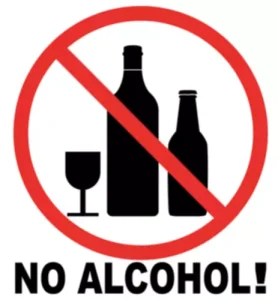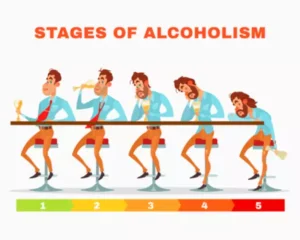
It’s like having your own personal cheerleading squad, rooting for you every step of the way. Addiction cravings are intense, often overwhelming desires to engage in substance use https://ecosoberhouse.com/ or addictive behaviors. They’re like that annoying earworm song that just won’t leave your head, except instead of humming a tune, you’re fantasizing about your drug of choice.
- Other neurotransmitters like serotonin, GABA, and norepinephrine also get in on the act, each contributing to the complex web of addiction and cravings.
- Below are some key strategies to help you stop craving wine, beer, and any other form of alcohol.
- They can support brain health, balance mood, boost energy levels, and fill the nutrition gap left by alcohol misuse.
- Frequent drinking can cause your body to build a tolerance to alcohol.
- They may be able to stop after two or three drinks, which means a significant harm reduction and a beneficial outcome.
Expert Tips For Reducing Your Alcohol Consumption

Coping with alcohol cravings requires a multi-faceted approach. Choosing fulfilling alternatives to drinking can help manage and reduce their intensity. These strategies can empower you to navigate cravings and maintain long-term sobriety.
Fermented Foods: A Gut-Healthy Choice

It can reshape an individual’s environment into a supportive and proactive system, reducing the opportunities for relapse. One factor to remember is that the discomfort of withdrawal is only temporary. This thought process can be a useful mental tool when the physical pain of withdrawal is most severe. Also, don’t get caught off guard thinking that since one craving has stopped, another one won’t come quickly. Often, cravings can come quickly and in succession of each other. The good news is that there are many ongoing clinical trials.
External Triggers for Alcohol Consumption
For snacks, choose foods that are high in carbohydrates, such as pretzels, crackers, or apples, which can help satisfy cravings. Remove all alcohol from your home or ask a friend or family member to do it for you. This includes beer, wine, and liquor, as well as products that contain alcohol such as rubbing alcohol how to reduce alcohol cravings and vanilla extract. But the real thing is often much stronger than simply being “in the mood” for a slice of pizza or an ice cream cone (although for people with eating disorders, food cravings can be very real). You aren’t to blame for your loved one’s drinking problem and you can’t make them change.
Social support is a vital part of recovery10 from alcohol addiction. When you have cravings, you can ask loved ones for encouragement. You might also attend a support group or schedule an extra session with your therapist. Mental health professionals can also help treat alcohol use disorder (AUD). AUD is a condition that occurs when a person has a physical need or desire to consume alcohol that is difficult to control.
- Acknowledge this natural sensation and remind yourself that it will subside.
- These carbohydrates are broken down slowly in the body, providing sustained energy and reducing the chance of experiencing alcohol cravings.
- Once you’ve identified a craving, it’s time to break out your coping strategies.
- Equally, internal triggers such as stress can also lead you to crave alcohol and the relaxed feeling that you used to achieve when you’d had a drink.
Seeking professional help, such as counseling or attending support groups, is crucial in addressing the underlying causes of alcohol addiction and developing effective coping mechanisms. Incorporating foods rich in vitamin B6, such as bananas, avocados, and chickpeas, into one’s diet can help support a healthier brain chemistry and reduce cravings. There is no fixed rule as to how long alcohol cravings will last. For some, they pass quickly, while for others, it takes a longer for them to resolve. Much of this is dependent on factors specific to the individual, such as how severe their alcohol use disorder was and how long it has been since they have engaged in drinking. Acamprosate is prescribed to people after they’ve quit drinking alcohol to help them maintain abstinence.
- Build a sober social network – If your previous social life revolved around alcohol, you may need to make some new connections.
- Ashwagandha is an herbal supplement used in traditional Indian Ayurvedic medicine.
- Instead of aiming for complete abstinence, for instance, aim to drink fewer than seven days a week.
Get professional help if your cravings are due to withdrawal

Continuous monitoring and access to medical care are essential. In general, going through withdrawal at home should be avoided unless your doctor recommends it. Lifestyle changes can play a huge role in reducing cravings.

If it helps, make a list of things that trigger you to drink. A balanced diet can significantly contribute to the success of a recovery journey. It ensures that the body gets all the essential nutrients it needs, which can reduce cravings and support overall health. Additionally, environmental factors play a significant role in alcohol cravings. For example, individuals who have grown up in households where alcohol misuse was prevalent may be more susceptible to developing cravings for alcohol themselves.

Navigating emotions, particularly anger, in addiction recovery is crucial for long-term success. Learning healthy ways to express and manage emotions can reduce the likelihood of turning to substances or addictive behaviors as a coping mechanism. What are you seeing, hearing, doing, thinking, or feeling that could have triggered the craving?


